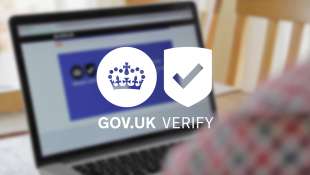This will be the first in a series of regular posts on our discovery work with local authorities that we introduced last month. Here we outline our approach to those discovery projects, how we’ll keep you up-to-date, and how we plan to prioritise work for the rest of 2016.
We’re taking a ‘publish by default’ approach to the discovery projects. All of the outcomes from the projects that can be shared publicly - including documentation, standards and software - will be published on the Local Digital Coalition’s website.
It’s my responsibility to work out how best to test GOV.UK Verify in some local authorities and demonstrate how it could improve local services for citizens and councils alike. I started working with GDS on trailing GOV.UK Verify with local authority services a month ago. As such, it’s a good moment to take stock and update you on what we’ve done so far and what’s coming up next.
Building on existing work
There are many organisations already working on local service transformation and collaboration, and we are keen to build on this rather than start from scratch. To this end, we’re working through the Local Digital Coalition, which includes iNetworks, iStandUK, Local CIO Council, Local Government Association, LocalGov Digital, Solace, Socitm, some lead local authorities, and others. The Local Digital Coalition was established in March 2016 to take over the resources created by the DCLG Local Digital Programme. We’ll build on this legacy by seeking cross-sector feedback at their meetings and sending updates to councils through their newsletter (sign-up here). As well as publishing updates here, we’ll be reporting our progress on the Coalition’s GOV.UK Verify project page.
What we’ve done in the last month
The GOV.UK Verify team started talking to local authorities before announcing this work in June. Since then, we have:
- contacted everyone who’d been in touch with us so far, inviting them to suggest service areas in which they might pilot GOV.UK Verify at their councils
- circulated this announcement through the Local Digital Coalition mailing list, the Linkedin Local Digital Community and on Twitter, inviting suggestions for discovery projects and inviting councils to feed into our joint discovery events with DVLA
- made contact with over 60 councils, and gathered more detailed service information from half of these
- planned 2 discovery events for July. These build on earlier work done by the DCLG Local Digital Programme and the DVLA that identified parking permit and taxi licensing services as high value areas to trial digital identity and automated DVLA data-checks. If your authority is interested in trailing GOV.UK Verify with either service area, you can apply to attend using the links below:
- July 15th London DVLA-GDS Discovery
- July 27th Bristol DVLA-GDS Discovery
The discovery process
More than 30 councils have provided us with service information. Our next job is to put those local authority proposals through 3 levels of prioritisation.
- We will identify authorities that have the capacity to work on a discovery project during 2016. This means they’re likely planning transformation already, so they’ll be able to work on a service with us; and they’ll have enough capacity to meet some ambitious deadlines. We’ll also be looking for authorities that will able able to meet our security and data privacy standards.
- We’ll then examine the services they have suggested for discovery this year. We’ll look at the business case for integrating GOV.UK Verify into these services nationally and create a prioritised list of service areas.
- Finally, we’ll put together collaborative project plans for the priority services and invite eligible councils to collaborate on discovery projects. We’ll aim to work with all the councils who can meet the requirements and deadlines set out with a view to successfully demonstrating GOV.UK Verify for local services by the end of 2016.
What next?
The next step will be to establish the basic risk and assurance requirements local authorities must meet to adopt GOV.UK Verify and to help councils understand the work involved in testing GOV.UK Verify for their services. We’ll be posting more on this here soon.
In the meantime, while the first call for discovery projects has closed, you can fill in the survey throughout July to share your ideas for future work, or ask us questions about getting involved, and we look forward to meeting some of you at our discovery events.

2 comments
Comment by MarkK posted on
A more scientific approach would be to enquire if Verify is indeed the correct approach, considering that local government requirements to collaborate with neighbouring councils are quite different from the central government monopoly silos around which the Verify privacy principles were reverse-engineered.
The parking exemplar for residents, for example, was identified during Francis Maude's IDAP launch session in October 2011, so it may be worth exploring why it hasn't yet been done.
https://gds.blog.gov.uk/2011/11/04/establishing-trust/
In particular, the option to re-engineer the process so that it asks DVLA if the registered keeper's address in within a specified range would avoid the need for any personal data to be used.
Comment by Linda O'Halloran posted on
Thanks for the comment Mark. Conscious of the fact that local authorities have different needs to central Government, we have launched the local authority workstream to work with the sector to understand and meet these needs. Privacy will continue to be an important factor when adapting GOV.UK Verify for local; however, we are reviewing our requirements for using GOV.UK Verify so that they best work for local government and foresee them differing somewhat from central requirements.